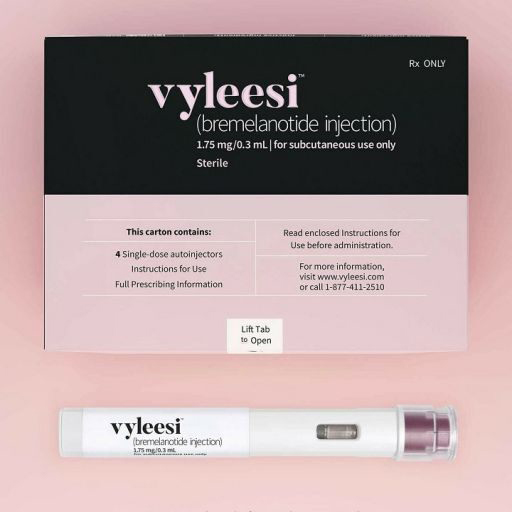Source: Thailand Medical News Jun 24, 2019 6 years, 1 week, 3 days, 4 hours, 16 minutes ago
The US FDA has just approved approve a new medication for pre-menopausal women suffering from low libido.The female version of Viagra, Vyleesi is an injectable drug that is meant for the treatment of hypoactive sexual desire disorder or HSDD. HSDD was recognized in 2012, and research has shown that about 1 in 10 women is affected by it just before the onset of menopause and more patients suffer from it after menopause.

There is already another FDA drug, Addyi (fibanserin) for this specific female disorder but when compared to the more than 25 option of drugs available for males with libido problems, there are not much options for females at the moment.
Vyleesi (generic name bremelanotide) is the first investigational drug to be evaluated on measures that view female’s sexual function and dysfunction ,as being sharply different than males. Derived from a compound first explored as a tanning product, bremelanotide is thought to amp up a woman's desire by changing the mix of neurochemicals involved in female sexual arousal. Vyleesi's manufacturer, AMAG Pharmaceuticals claims that their new drug is superior to the one on the market now and that women's sexual concerns are better understood and the FDA's deliberations better reflect women's needs.
Eric Claassen, chief business officer of the Dutch firm Emotional Brain, which expects to bring a pair of female HSDD drugs to the market by 2022 said in an interview with Thailand Medical News, "it’s a huge market with unmet medical need, we anticipate potential sales of our personalized medicine drugs, Lybrido and Lybridos, could peak at $2 billion when launched. Both are still under clinical trials and expected to be approved for marketing in Europe first.”
Prior to the FDA's approval, AMAG sponsored billboards, online forums and social media campaigns to spread the word about female hyposexual desire disorder through its tagline "It's not 'down there.' It's 'up here,' between your ears," campaign. Radiological scans suggest that HSDD can be caused by an imbalance of certain hormones and neurotransmitters in the brain.
In the US alone,drug-companies' yearly spending on such "disease awareness" campaigns has risen sharply in recent years, reaching $920 million in 2018. These campaigns are credited with lowering the stigma attached to many conditions, including depression and erectile dysfunction.
Considering the measures FDA uses to determine the effectiveness of HSDD drugs, bremelanotide appears extremely promising. In a concluding round of clinical trials, more than 60% of female patients taking bremelanotide reported improvement in the distress levels they felt over their low libido,a significant increase over the roughly 30% of female participants taking placebo medication.
AMAG is expecting Vyleesi to gain more traction with women and doctors than has Addyi, a medication that was shown in clinical trials to modestly increase women's sexual desire. Furthermore there has been lingering safety concerns and cost as well. Women must take the medication daily, at a cost of as much as $426 a month. While the FDA recently loosened warnings against any alcohol consumption by women taking Addyi, it has warned that the drug should not be used within two hours of alcohol consumption.
As an "on demand" drug, designed to be
taken only when women want to want sex,Vyleesi is likely to be less expensive than flibanserin, and has fewer interactions with other drugs women take.
Bremelanotide's availability offers a new approach for a select group of patients for whom enhancing certain neurotransmitters is just what they need to kick-start a complex process.
